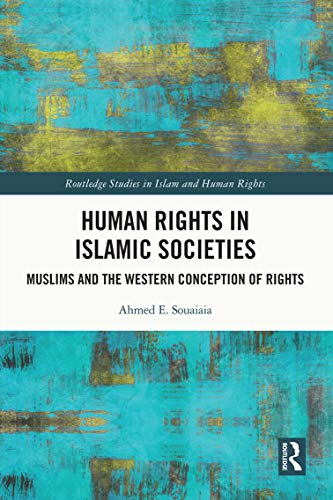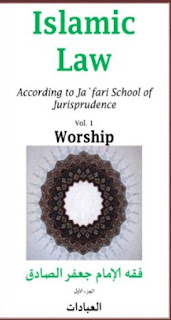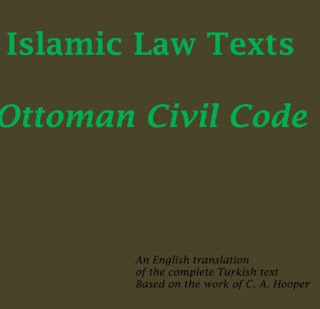Al-`awl According to Five Islamic Schools of Jurisprudence
`awl is applied where the shares exceed the heritage, such as where the deceased leaves behind a wife, parents and two daughters (the shares being, the wife's one-eighth, the parents' one-third, the two daughters' two-thirds; here the estate falls short of the sum of one-eighth, one third and two-thirds 127/24]). Similarly, if a woman dies and leaves behind her husband and two agnate sisters, the share of the husband is one-half, and that of the sisters two-thirds; here the estate falls short of the sum of half and two-thirds (7/6). 'Awl occurs only if the husband or the wife is present.
The schools differ regarding the issue. Will the deficit, in such a case, be diminished proportionately from the shares of all the sharers, or will it be diminished from the shares of only some of them?
The four Sunni schools accept the doctrine of 'awl, the rule that all the shares will be diminished proportionately, exactly like the creditors' claims when the assets fall short of meeting them. Hence if the heirs are wife, parents and two daughters, according to these schools it will be an instance of 'awl. The obligation is met by dividing the heritage into 27 parts, though it earlier comprised 24 parts. The wife will take 3/27 (i.e. her share becomes 1/9 instead of 1/8), the parents take 8/27 and the daughter 16/27.
The Imámís do not accept the doctrine of 'awl and keep the corps (in the previous example) fixed at 24 parts by diminishing the share of the two daughters. Hence the wife takes her complete share of 1/8 (which is 3/24), the parents take 1/3 (which is 8/24), and the remainder goes to the two daughters.
The four schools argue in favor of the validity of 'awl and the reduction of all the shares by citing the precedent of a woman who died during the reign of the Second Caliph, `Umar, leaving behind husband and two agnate sisters. The Caliph gathered the Companions and said: "The shares determined by God for the husband and the two sisters are a half and two-thirds respectively. Now if I start with the husband's share, the two-thirds will not remain for the two sisters, and if I start with the two sisters, the half will not remain for the husband. So give me advice."
Some advised him to follow 'awl by diminishing all the shares pro portionately, while Ibn 'Abbas vehemently opposed it. But 'Umar did not accept his view and acted according to the opinion of others, telling the heirs: "I do not see any better way regarding this estate but to dis tribute it amongst you in proportion to your shares." Hence 'Umar was the rlrst person to apply 'awl to the shares and all the Sunni schools followed him.
The Imámiyyah argue regarding the invalidity of the doctrine of 'awl by ob~ning that it i8 impo~ible for Allah, subhanahu, to divide an estate into shares or half and two-thirds, or shares of one eighth, one third and two-thirds, because, otherwise, ignorance and frivolity would be attributed to Him, while He is too exalted to deserve such attributes. Hence, it has been narrated from Ali (A) and his pupil Abd Allah ibn Abbás that they said: "He Who can count the number of sand grains (in the universe) surely knows that the number of shares do not exceed.
The Imámís always diminish the share of the daughters or ~ister6, and the shares of the husband, the wife and the parents remain unaltered; because the daughter~ and the sisters have been assigned a single share and do not face a reduction from a higher to a lower share. They, therefore, inherit as sharers in the absence of a male heir and as residuaries in his presence, and at times they are entitled along with him to less than what they are entitled to when alone. However, the share of the husband is reduced from a half to one fourth, the wife's from one fourth to one-eighth, the mother's from one-third to one sixth, and in certain cases the father inherits one-sixth as a sharer; the share of none of them further diminishes from its determined minimum, and nothing is reduced from it. Hence, when the shares exceed the corpus, a start will be made from this minimum limit and the remainder will go to the daughters or sisters.
Al-Shaykh Abu Zuhrah, in al-mirath `inda al-Imámiyyah, quotes Ibn Shiháb al-Zuhri as having said: "If it were not for the preference given to the fatwa of the just leader 'Umar ibn al-Kha~ab over the fatwa of Ibn 'Abbas, the observation of Ibn 'Abbas is worthy of being followed by every scholar and worthy of consensus over it."
The Imámís have adopted the opinion of Ibn 'Abbas—may God be pleased with both of them—which is a good rule, as pointed out by Ibn Shihab al Zuhri, who was an ocean of knowledge.




0 comments:
Post a Comment